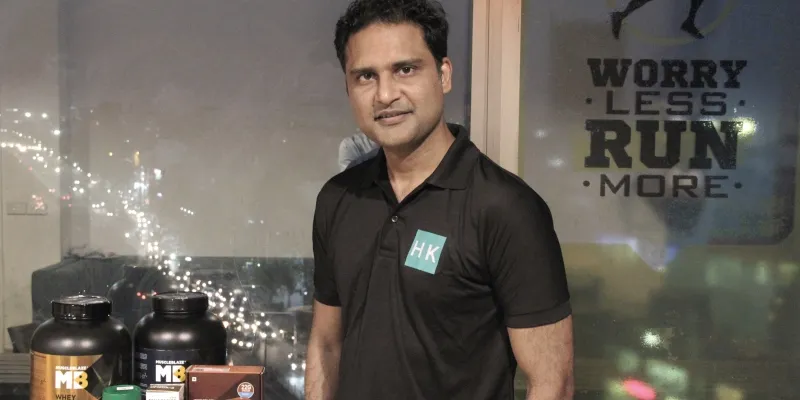[Funding alert] Armed with fresh funding of $25M led by Sofina, HealthKart is gunning for a strong presence in the nutrition space
Gurugram-based omni-channel healthtech startup HealthKart raised funding of $25 million led by Sofina. The funds will primarily be used for expansion and launch of additional direct-to-consumer nutrition products.
It was the year 2010. Everything was moving online, but medicine and healthcare in the Indian context kept away. This is where Harvard and Stanford graduates Prashant Tandon and Sameer Maheshwari saw a gap. And to address it, in 2011, they founded HealthKart as an ecommere player for nutrition, medicines and other medical needs in Gurugram.
In 2015, though, the company hived off its medicine and medical ecommerce operations into a separate entity – 1mg – which was co-founded by Prashant along with Gaurav Agarwal.
Today, Healkart is an omnichannel nutrition platform that offers a range of nutrition supplements like proteins, vitamins, and herbal supplements through an online portal, and over 110 offline stores spread across 40 cities. The company claims to be clocking 60 percent year-on-year growth since it was started. The team announced it had raised $25 million in funding led by Sofina. Existing investors include Sequoia Capital India, Kae Capital, and Omidyar Network.

Sameer Maheshwari, Co-founder and CEO, HealthKart
Building the nutritional business
HealthKart Co-founder and CEO Sameer told YourStory,
“In 2015, we decided to focus on HealthKart as a nutritional business. We saw a large opportunity in the space. Unlike the US, which has speciality nutrition stores, there were none in India. People had started moving towards preventive care, and there was hardly any offline presence. So, we decided to enter the offline nutrition market and provide the same experience we do online - give the consumer support, counselling and guidance.” Soon the team integrated the channel.
Currently, HealthKart claims the online-offline split at 50:50. It also offers assistance to its customers in product selection and diet planning through trained nutritionists.
With this $25 million, HealthKart aims to expand its offline store network and also more direct-to-consumer nutrition brands and strengthen its vertical integration.
On the funding, Tanya Sen, Investment Manager at Sofina Asia, said,
“We look forward to partnering with HealthKart to further expand its brand portfolio and distribution network. We are impressed by the pace at which the management team has scaled the MuscleBlaze brand and are proud to back their commitment to building a range of high quality, authenticity-guaranteed products for the Indian consumer. This investment is part of our strategy to be long term partners to talented entrepreneurs and investors building sustainable businesses in growing markets.”
Also read: Healthtech startup Medlife acquires Myra Medicines
Product development
HealthKart claims its flagship brand – MuscleBlaze – is one of the leading sports nutrition products in the market, and has a double-digit market share and strong brand recall.
The company is now planning a similar approach in building strong brands in adjacent nutrition categories such as vitamins, health supplements and children’s nutrition. Sameer explains that the team saw another white space in the consumer brand segment, and that is what led them to build MuscleBlaze.
“We realised in our conversations with consumers that there was a need for a sports nutrition product. That is how we developed MuscleBlaze. We built an online rapport with people who are interested in the product, asked them what they were looking for and built it,” he says.
The company, which has invested significantly in R&D, made several different formulae, as according to Sameer, the sports nutrition market was largely dominated by players from the US. The HealthKart team therefore decided to co-develop the products with consumers based on their requirements. Once MuscleBlaze scaled online, they introduced the product offline as well. The team has FSSAI certifications and additional protein certifications by NABL certified labs.
Leveraging technology
HealthKart has a 30-member R&D team comprising food scientists and pharmacists working on developing next-generation nutraceutical solutions for Indian consumers. It has also commissioned its first manufacturing plant to allow for tighter quality control and quicker commercialisation of products.
“The offline stores spread across 40 cities is the core customer education and acquisition tool for the company. Trained nutrition experts, available at the stores and online, help customers navigate and select the right products. The company plans to expand the store network, and also leverage data and AI technologies to provide superior assistance to customers,” says Sameer.
The company also plans to use IoT devices in offline stores and build tech where they collate data from all sources - social media, IoT data, review data and leverage AI - to build more customised products and understand customers better.
The market and future
Between 2015 and 2023, the Indian dietary supplement market is expected to grow at a CAGR of 20 percent, according to a study by ResearchandMarkets. Currently, HealthKart competes with Amway, which holds 33.5 percent market share, followed by Pfizer Limited, Merk, Bayer, and Abbott.
The ResearchandMarkets report also suggested that currently, minerals and vitamins occupy over 40 percent of the market, the herbal segment around 30 percent, proteins account for 25 percent, and others make up the remaining five percent.
Explaining their core differentiator, Sameer said,
“Pharma companies have been doing nutrition products for a while. Their approach, however, is different. They go through pharma and traditional channels. We look at direct-to-consumer brands. The focus is on creating a large distribution through online and own offline channels. We are looking at real-time feedback from our consumers, and to partner with them not just for support, but also to build great products. The idea is to build differentiated products for differentiated profiles.”


![[Funding alert] Armed with fresh funding of $25M led by Sofina, HealthKart is gunning for a strong presence in the nutrition space](https://images.yourstory.com/cs/2/a9efa9c0-2dd9-11e9-adc5-2d913c55075e/Sameer_HK1557397666340.jpg?mode=crop&crop=faces&ar=2%3A1&format=auto&w=1920&q=75)




